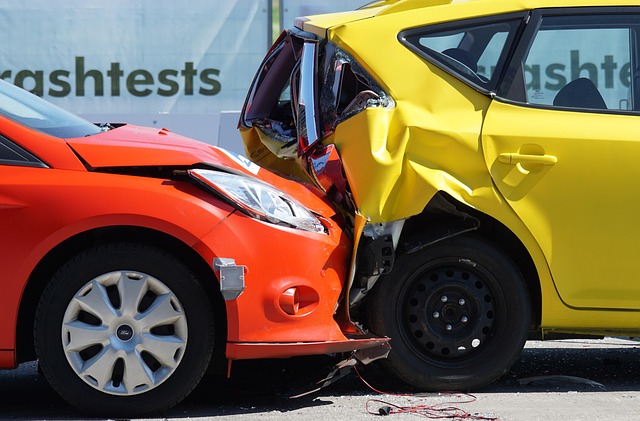Collision and comprehensive auto insurance serve distinct purposes, with collision covering repairs from vehicular accidents and comprehensive providing broader protection against various incidents like theft, natural disasters, and vandalism. Collision insurance is ideal for drivers at higher risk of accidents, while comprehensive suits those in regions with extreme weather or high crime rates. When deciding, consider vehicle age, condition, value, driving habits, and regional risks to choose the most suitable option for your unique needs.
Navigating the world of auto insurance can be confusing, especially when deciding between collision and comprehensive coverage. This article guides you through these essential protections, helping you understand the differences and make an informed choice. From accidental damage to all-encompassing risks, we explore when each type is necessary and the benefits they offer. By the end, you’ll be equipped with the knowledge to select the best option for your needs, ensuring peace of mind on the road—one of the most crucial decisions in maintaining your financial security.
Understanding Collision Insurance: Coverage for Accidental Damage

Collision insurance is a crucial component of auto coverage that protects against financial loss in the event of an accident. When you choose collision coverage, it typically covers repairs or replacements for your vehicle if it’s damaged due to a collision with another object or vehicle. This includes accidents involving other cars, as well as incidents with fixed objects like trees, light poles, or buildings.
In contrast to comprehensive insurance, which offers broader protection against various risks, collision insurance specifically targets accidental damage. It is an excellent choice for drivers who value peace of mind and want to ensure they can afford necessary repairs without facing substantial out-of-pocket expenses. Understanding the nuances between collision vs. comprehensive auto insurance allows you to make an informed decision tailored to your driving needs and financial comfort.
Comprehensive Insurance: Protecting Against All Risks

Comprehensive insurance offers protection against a wide range of risks, beyond just collision-related incidents. This type of coverage is ideal for drivers who want to be prepared for unexpected events that could damage their vehicles. It includes protection from theft, natural disasters like floods or hurricanes, and even vandalism. When you choose comprehensive insurance, you’re essentially insuring your vehicle against all non-collision perils.
Unlike collision insurance which primarily covers accidents involving another vehicle or stationary object, comprehensive insurance provides a safety net for various other scenarios. This could mean peace of mind knowing that if your car is damaged by falling debris, hit by a stray bullet, or even stolen, you won’t be left with a hefty repair bill. It’s an excellent option to consider when comparing collision vs. comprehensive auto insurance policies.
When Is Collision Insurance Necessary?

Collision insurance is a crucial component in your auto insurance policy, especially if you’re prone to accidents or drive on treacherous roads. It’s designed to cover repairs or replacements when your vehicle sustains damage due to a collision with another object or vehicle. This type of insurance is particularly necessary if you:
1. Live in areas with high traffic and frequent accidents.
2. Have a history of minor fender benders or more significant collisions.
3. Drive frequently in adverse weather conditions that increase the risk of accidents, such as snow-covered roads.
4. Use your vehicle for commercial purposes, increasing its exposure to potential risks.
When compared with comprehensive insurance, collision coverage specifically addresses physical damage caused by external factors, providing peace of mind while ensuring your vehicle’s repair or replacement costs are covered in the event of a collision.
Benefits of Comprehensive Auto Insurance

Comprehensive auto insurance goes beyond collision coverage by protecting against a wider range of events. Unlike collision insurance, which primarily covers accidents involving another vehicle or object, comprehensive insurance includes damage from natural disasters like floods, storms, and earthquakes. It also shields against issues like theft, vandalism, and animal-related incidents. This type of policy can be a game-changer in regions prone to extreme weather conditions or high crime rates, offering peace of mind knowing your vehicle is insured against unforeseen circumstances.
When comparing collision vs. comprehensive auto insurance, comprehensives’ benefits become evident. While collision coverage might not be necessary if you drive cautiously and don’t frequently encounter hazardous situations, comprehensive insurance provides added security. It can help you avoid hefty out-of-pocket expenses for repairs or even total vehicle loss due to events beyond your control. This is especially beneficial for those who rely on their cars daily, ensuring they’re protected in various scenarios that could arise during their travels.
Factors to Consider When Choosing Between Collision and Comprehensive

When deciding between collision and comprehensive auto insurance, several factors come into play. Firstly, understand that collision coverage is designed to protect you financially in the event of a crash involving your vehicle, paying for repairs or replacement up to your policy limits. This makes it essential if you drive an older or more valuable car. On the other hand, comprehensive insurance covers a broader range of incidents besides collisions—from theft and natural disasters to vandalism—but typically has higher deductibles.
Consider your driving habits, vehicle age and condition, and the risk factors in your area. If you’re a cautious driver with a modern car, comprehensive might offer adequate protection at a lower cost. However, if you drive an older vehicle or live in a high-theft region, collision coverage could provide better peace of mind despite the higher premium. Weigh these aspects to choose the most suitable option for your unique circumstances.
Real-World Scenarios: Making the Right Choice

When deciding between collision and comprehensive auto insurance, real-world scenarios can help illustrate the differences. Imagine a scenario where your vehicle is involved in a minor fender bender with another driver. Collision coverage would step in to help repair or replace your car, as it’s designed to cover damage from accidents involving other vehicles. On the other hand, comprehensive insurance goes beyond collision and also protects against non-accident related damages like theft, vandalism, or even natural disasters.
Now, consider a different situation: Your car is parked safely in your driveway when it gets hit by a flying object during a severe storm. Comprehensive insurance would cover this unexpected event, ensuring you’re not left with a substantial out-of-pocket expense for repairs or a total loss. Collision coverage, however, typically does not include protection for such events unless the damage also involves another vehicle. Understanding these scenarios can help guide your decision when choosing between collision and comprehensive auto insurance.
